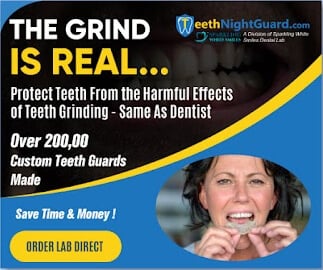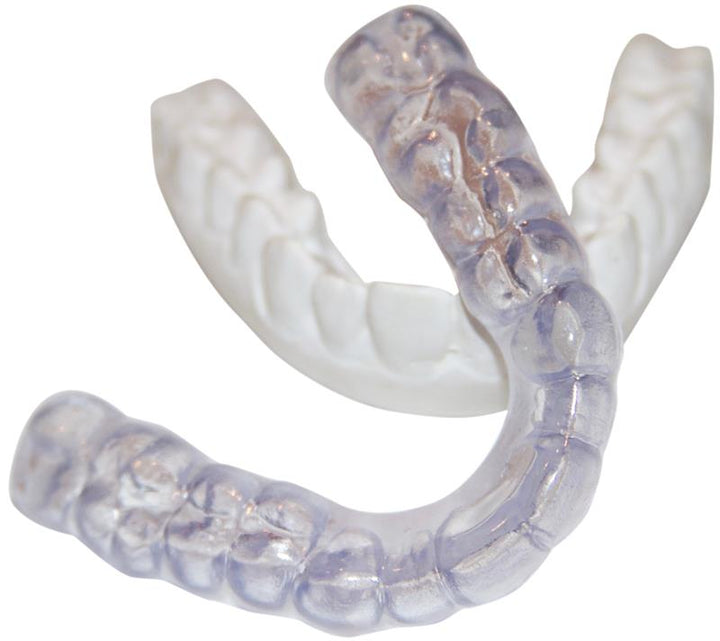Protecting your teeth and gums by wearing a night guard is an important part of oral health for many people who suffer from teeth grinding and clenching, as well as those who need specialized guards for jaw alignment or sleep disorders.
But night guards aren’t cheap. They are an investment in your long-term health, and some very specialized night guards are quite pricey. Plus, it is important to replace your night guard in a timely manner to ensure the best protection and hygiene. So, paying for them can be a real concern.
Fortunately, if you have a Health Savings Account (HSA) or a Flexible Spending Account (FSA), your night guard should be eligible for coverage with funds from your account. Read on for more details.
What Are Health Savings Accounts (HSAs) and Flexible Spending Accounts (FSAs)?
In case you’re new to learning about these kinds of accounts, let’s cover some basics. Both HSAs and FSAs allow you to set aside pre-tax money to pay for certain expenses. That means, as long as you spend that money on eligible purchases, you will pay no income tax on it. So, if you and/or your family have significant healthcare costs, you can save yourself a lot of money by setting up and using one of these kinds of accounts.
Now, let’s look at the differences between the two:
Who can set up the account?
FSAs are set up through an employer. The funds for the employee’s FSA are usually drawn directly from the employee’s paycheck—pre-tax—at an amount chosen by the employee. Sometimes, employers will also contribute directly to the account funds.
HSAs, by contrast, is set up and operated by you, the individual. HSAs will follow you from job to job and are also an option for those who are self-employed. The catch? In order to qualify for one, you have to be enrolled in a high-deductible health plan (HDHP). Check health insurance or government websites to find the latest definition of an HDHP—for 2022, it’s a plan with a deductible of $1400 for an individual or $2800 for a family.
What will the plan pay for?
HSAs are only for healthcare costs (including dental costs). Eligible expenses can include health monitoring devices, mobility aids, office visits or prescription copays, and healthcare devices such as night guards. For some of these expenses to qualify, you may need to have a prescription from a provider, and you may need to get a specific make or model (such as one that has been approved by the FDA). So, it is always good to double-check item eligibility before making large purchases.
FSAs offer two different kinds of accounts, one that focuses on healthcare expenses (just like an HSA) and another that allows for childcare costs to be covered with account funds. If given the option by your employer, you will have to decide which type you want when opening the account.
Are there limits on how much you can put into the accounts?
Yes, each type of account has a limit for how much you can deposit annually. Those amounts can change each year (usually increasing). So, you will want to check the latest limits for your type of account.
Will the money in the account carry over from year to year?
HSA account funds will carry over from year to year, but FSA funds will not, meaning that you need to be more strategic when deciding how much money to divert to your FSA account. You want to be sure you will use all of your funds each year.
How do you use your account funds on a night guard?
Many FSA and HSA account owners use debit cards associated with their accounts to make eligible purchases. Using these cards allows for quick and convenient purchase and delivery. But you still want to be sure your purchase will be eligible upon review.
Alternatively, you can send in your purchase information in order to be reimbursed by from your account for purchases you made with a credit card or other payment method.
For a night guard, you will likely want to get a prescription for a guard from your dentist to ensure that your night guard will be covered by funds in your HSA or FSA. You can then choose to purchase your night guard through the dentist, who will take a mold in the office, or order a custom night guard directly from a manufacturer, such as TeethNightGuard, that will ship you a kit for taking a mold at home.
By ordering directly from a night guard manufacturer, you can save yourself a lot of money, which is important. Even though your FSA/HSA funds are composed of pre-tax money, it’s still your money, and you want to make it stretch as far as possible.

JOIN OUR NEWSLETTER! RECEIVE PROMOTIONS & COUPONS FOR CUSTOM DENTAL NIGHT GUARDS
INTERESTED IN BECOMING AN AFFILIATE OF TeethNightGuard.com?
Earn a 15% commission for simply sharing with your friends and family through email or social media such as Facebook, Reddit, or Twitter. Sign up and learn more here: https://www.teethnightguard.com/pages/register-affiliate-account
EXTRA DURABLE 3MM CUSTOM NIGHT GUARD - MAXIMUM DURABILITY AND COMFORT - MOST RECOMMENDED

$119.99
Item Number SWSPRO Manufacturer Sparkling White Smiles Dental Lab Rating Product Description Love this product? Share the product page link with Friends and Family. Simply copy the product page web address or this link: Custom Teeth Night Guard and post!… Read More